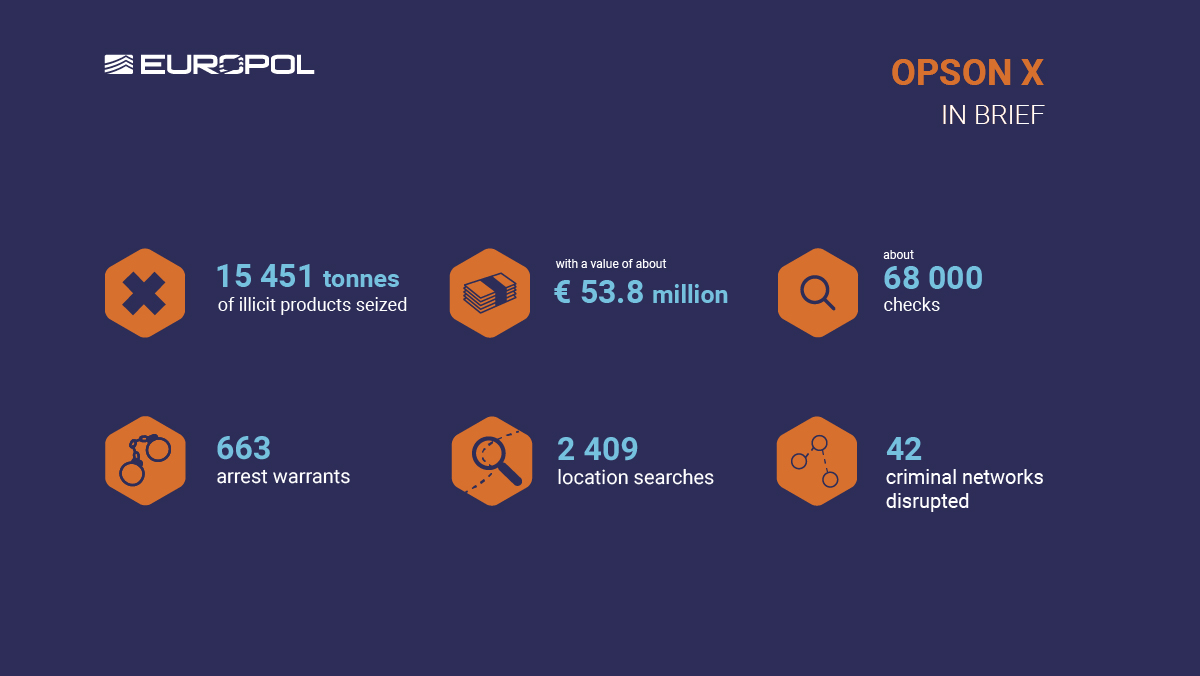Members of the Global Alliance on Food Crime (GAFC) had a very busy week when they met up in Edinburgh during December last year (2024).
Representatives from the Australian Department of Agriculture, Fisheries and Forestry (DAFF), the Canadian Food Inspection Agency(CFIA) and USA FDA made the long journey to Scotland to join up with UK representatives, Food Standards Scotland’s Scottish Food Crime and Incidents Unit and FSA’s National Food Crime Unit, to discuss all things food crime.
As a bonus, all those attending were able to take part in Opson/EMPACT event, which was also taking place in Edinburgh at the same time. Opson is an annual operation, led by Europol, which targets fake and unsafe food and beverages. This event was attended by law enforcement and regulators from across Europe and was a fantastic opportunity for GAFC members to interact with their European counterparts and discuss common issues. There was also an opportunity to formally showcase GAFC work and future plans in the form of a presentation given by GAFC members Murray from DAFF and Jodi from the CFIA.
In terms of the GAFC meeting, a significant number of matters were discussed and an action plan, designed to deliver the GAFC strategic objectives and developing processes that will allow joint activity to be undertaken by member countries, was agreed. These discussions were very positive and will see the GFAC’s work progress over the next 12 months.
In addition, The Food Authenticity Network’s (FAN) very own Executive Director, Selvarani Elahi, addressed the group on the work of FAN and gave an overview of the new the European Food Fraud Community of Practice (EFF-CoP) project that FAN is a partner of. This three-year Horizon Europe project aims to revolutionise the combat against food fraud and enhance transparency in food supply chains. Further information can be found on the FAN EFF-CoP page or its LinkedIn page. All GFAC members agreed to consider partnering with FAN and see how they could assist FAN in extending its reach in each member country.
The group also took some time to meet with representatives from the United Nations Industrial Development Organisation (UNIDO) to find out more about the work they are doing globally and how the GAFC could assist some of this work from a food crime perspective moving forward. Further meetings will take place early in 2025 to map out exactly how the GAFC can support UNIDO’s work in this regard.
GAFC members will take the time to meet regularly during 2025, working collaboratively to deliver the GAFC action plan and consider options for additional joint activity on common issues.
Regular updates will be provided over the coming months, however, further information on the work of the GAFC can be obtained by emailing the Chair of the GAFC, Ron McNaughton at ron.mcnaughton@fss.scot.
The December update has also been added to the 'Global Alliance on Food Crime' page on this website. Further information on the members of the GAFC will be added soon so watch that page......
